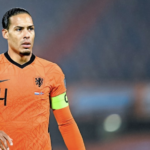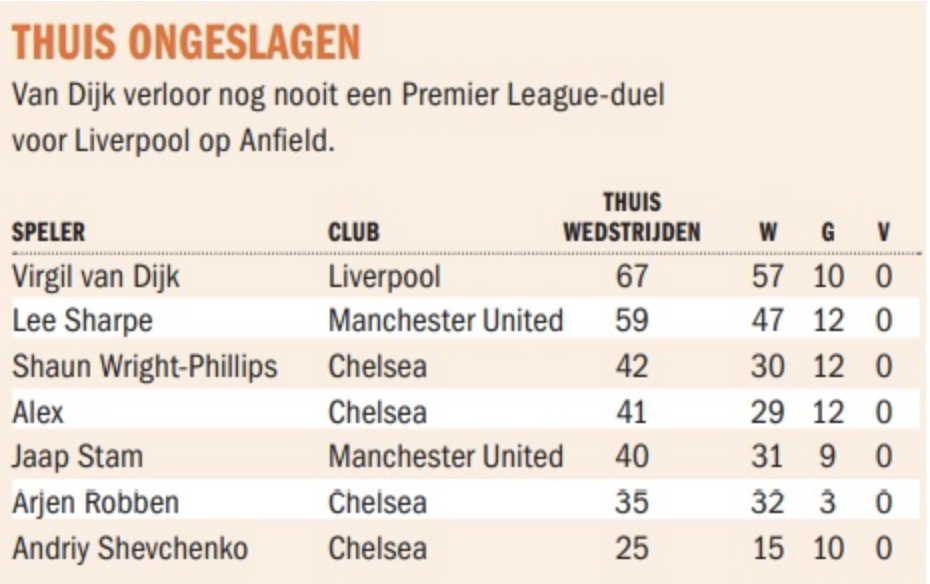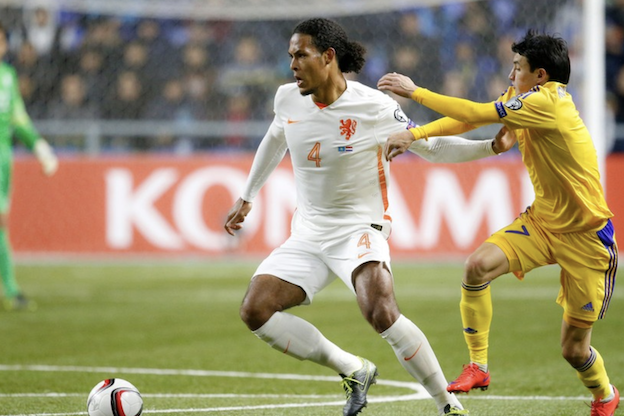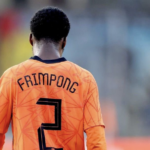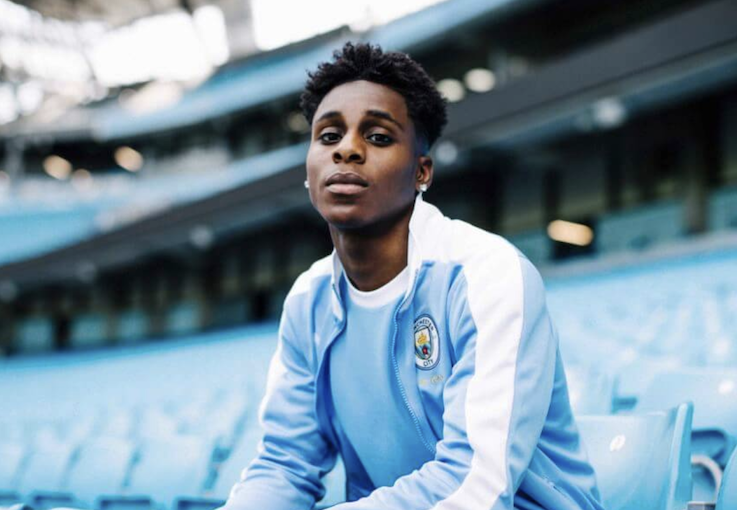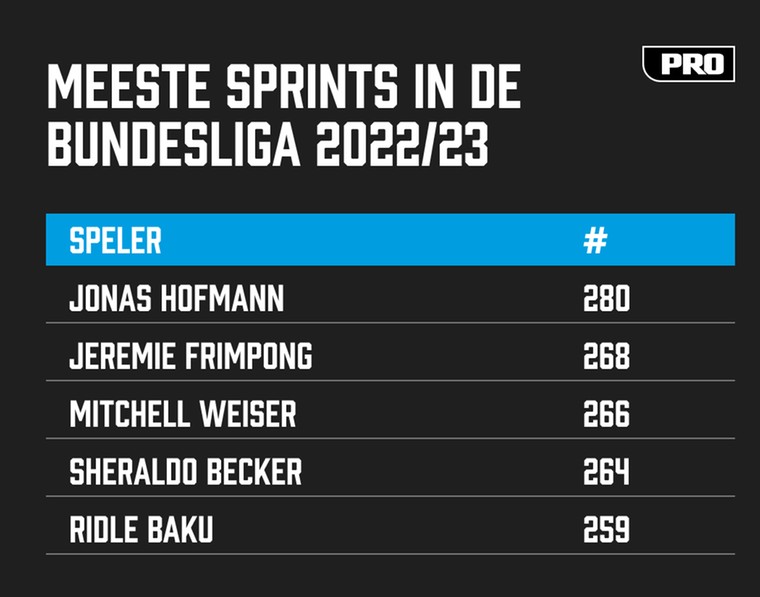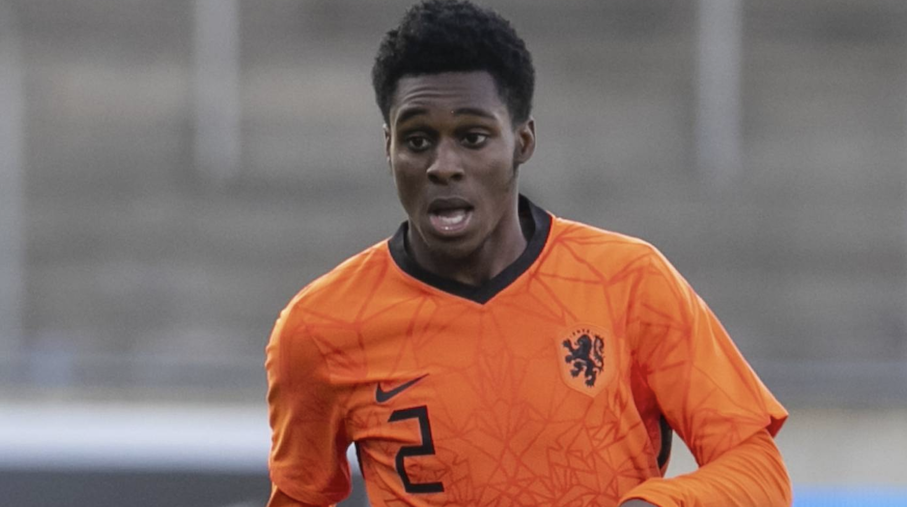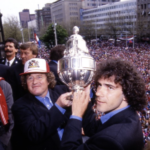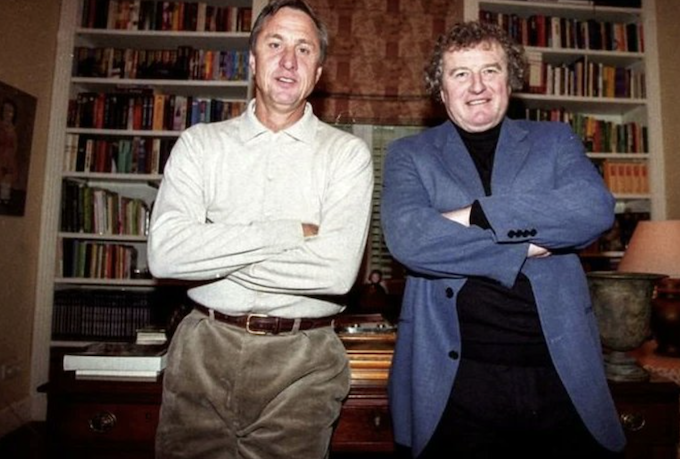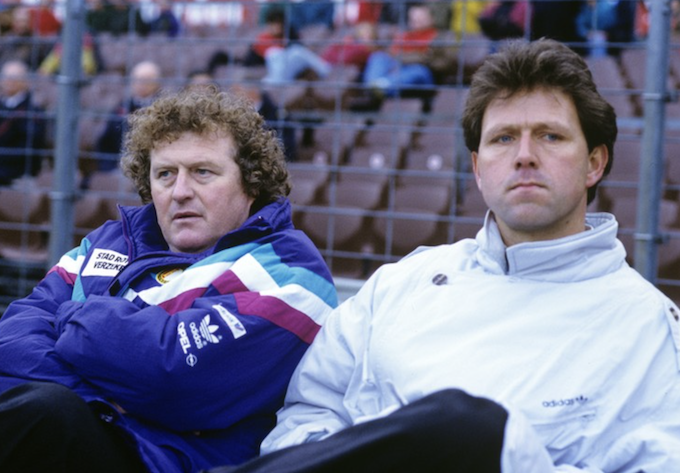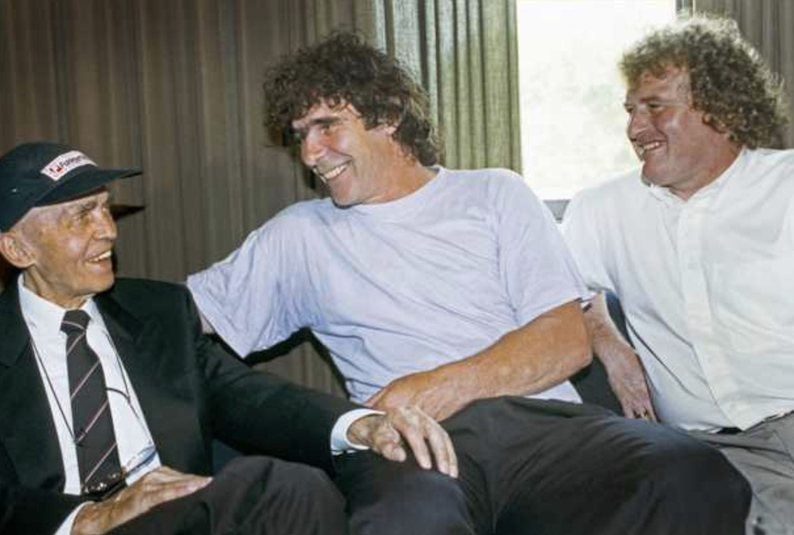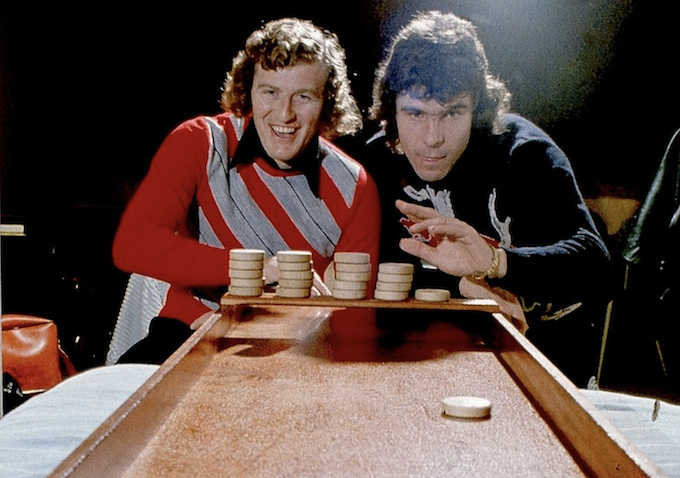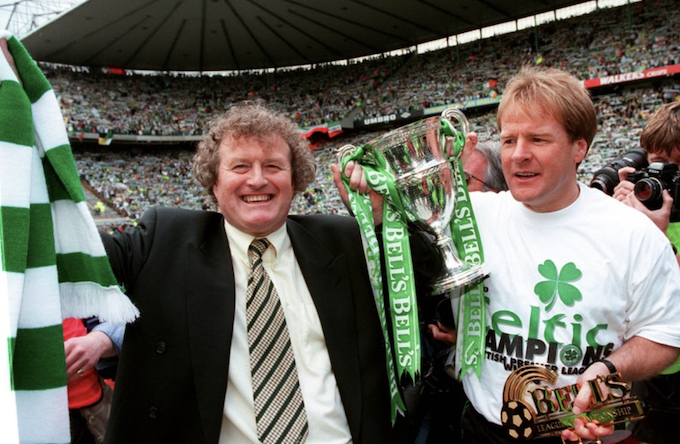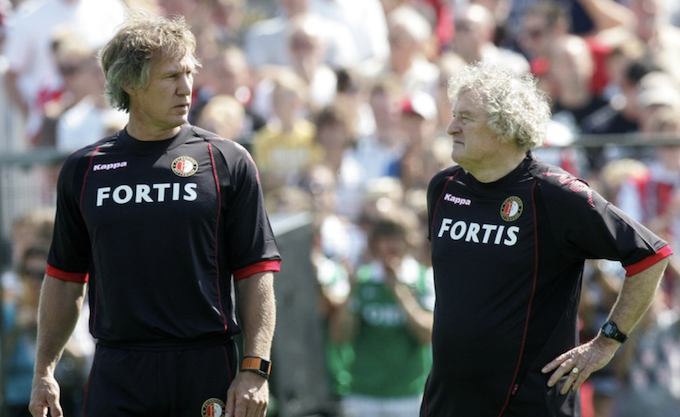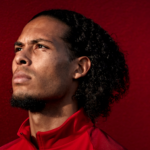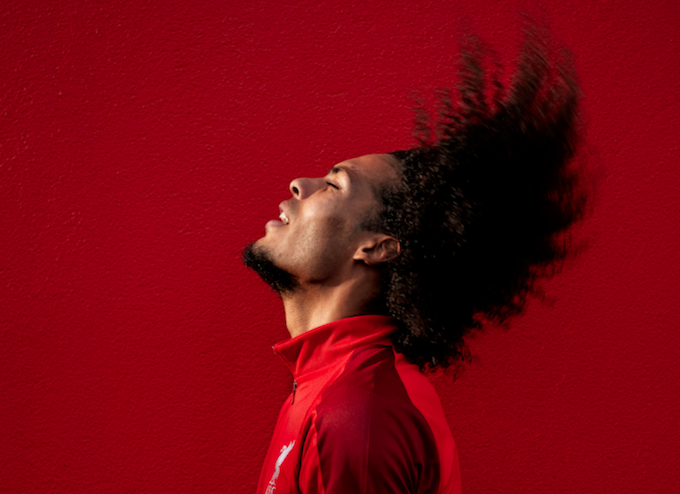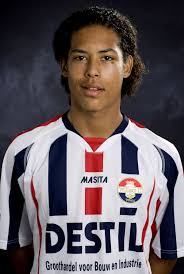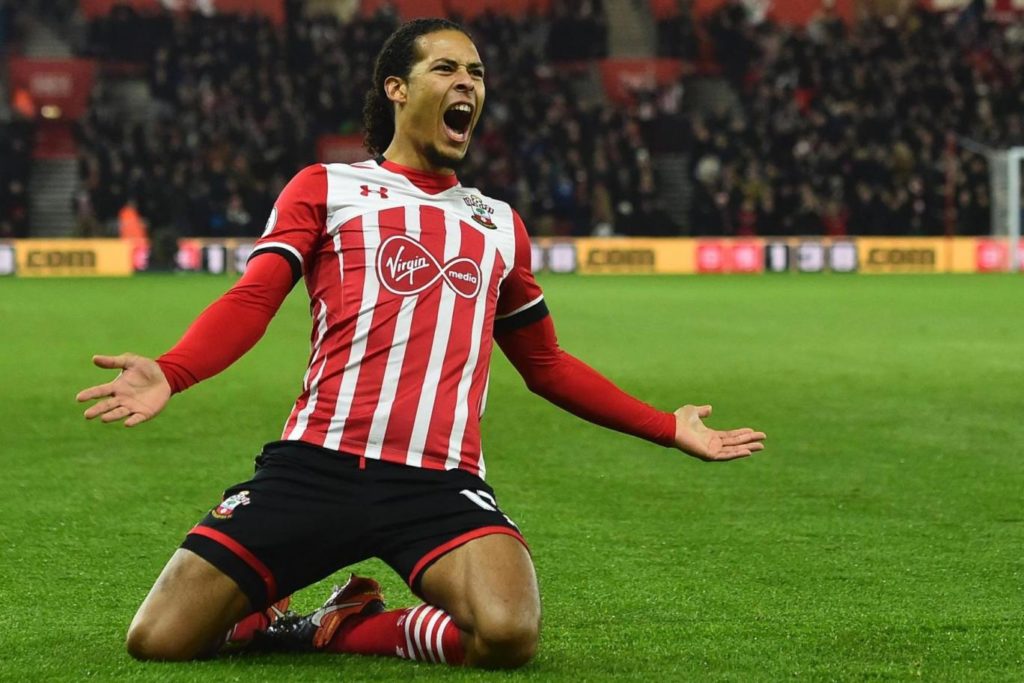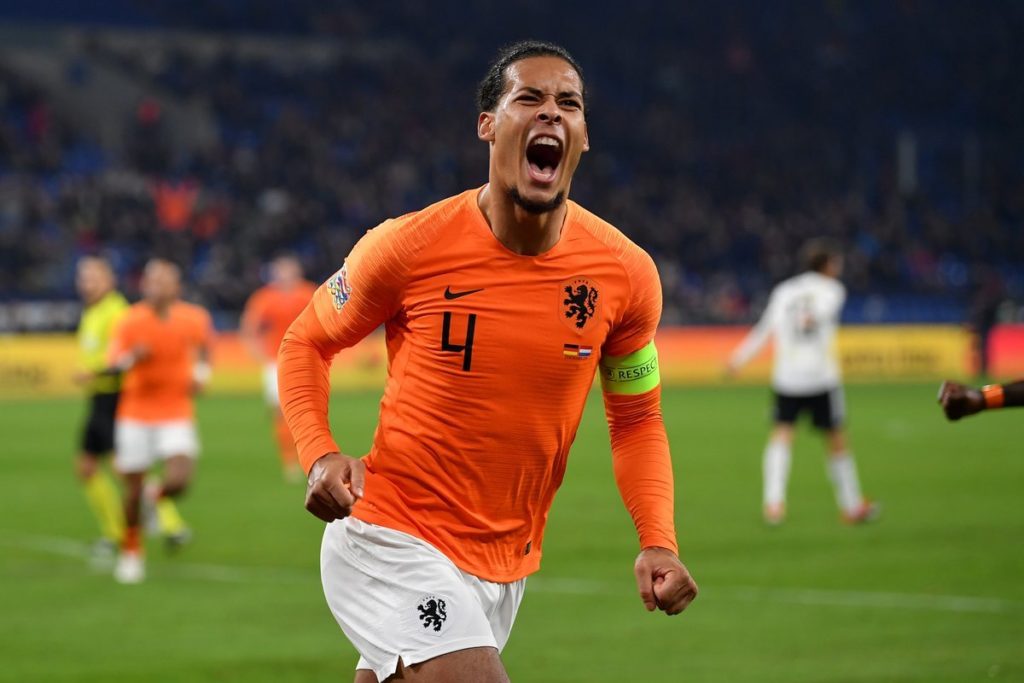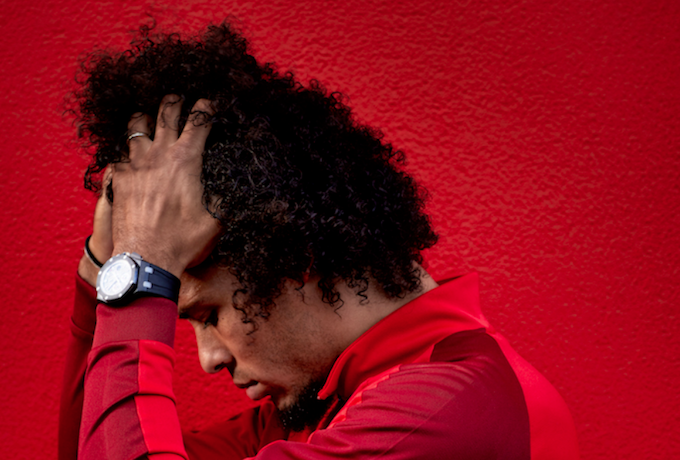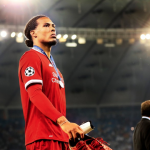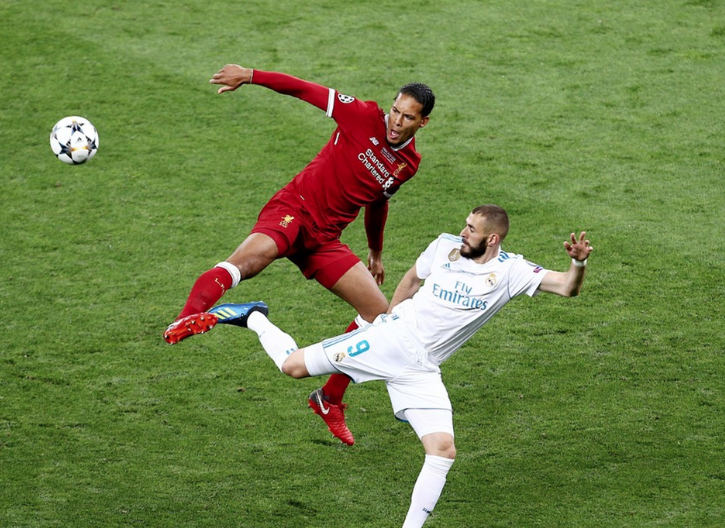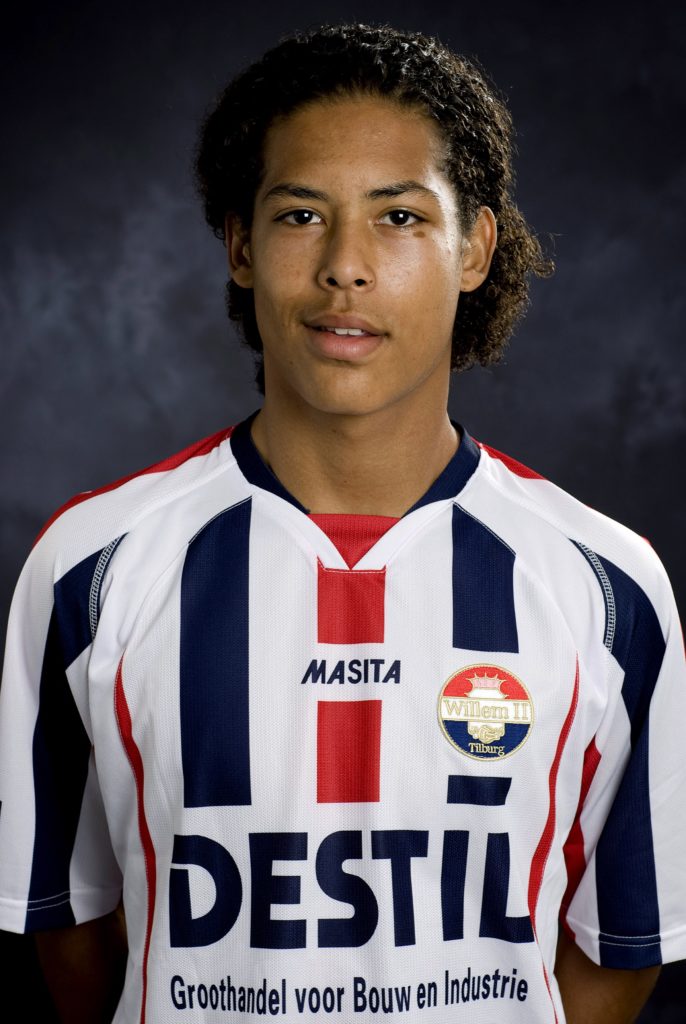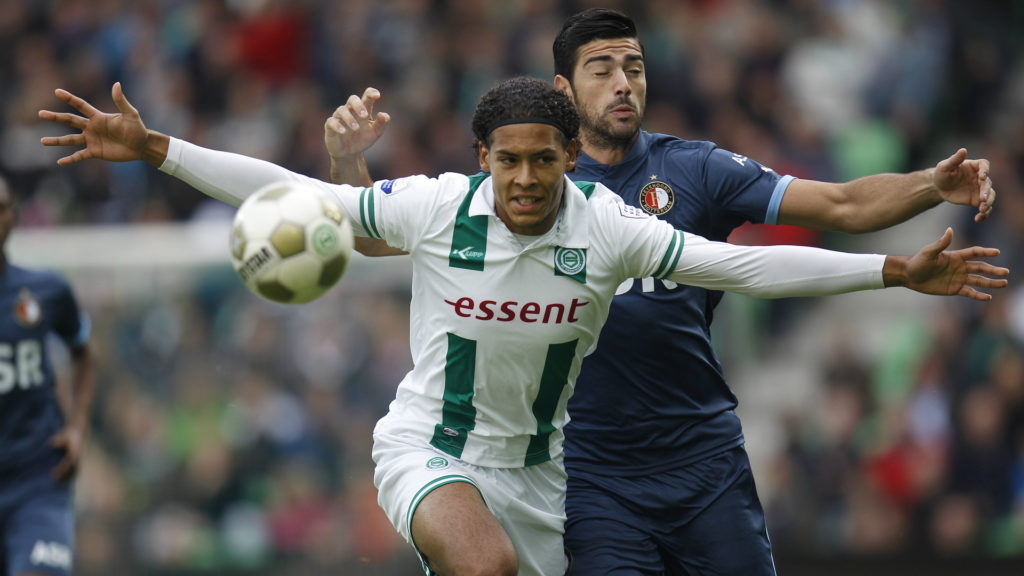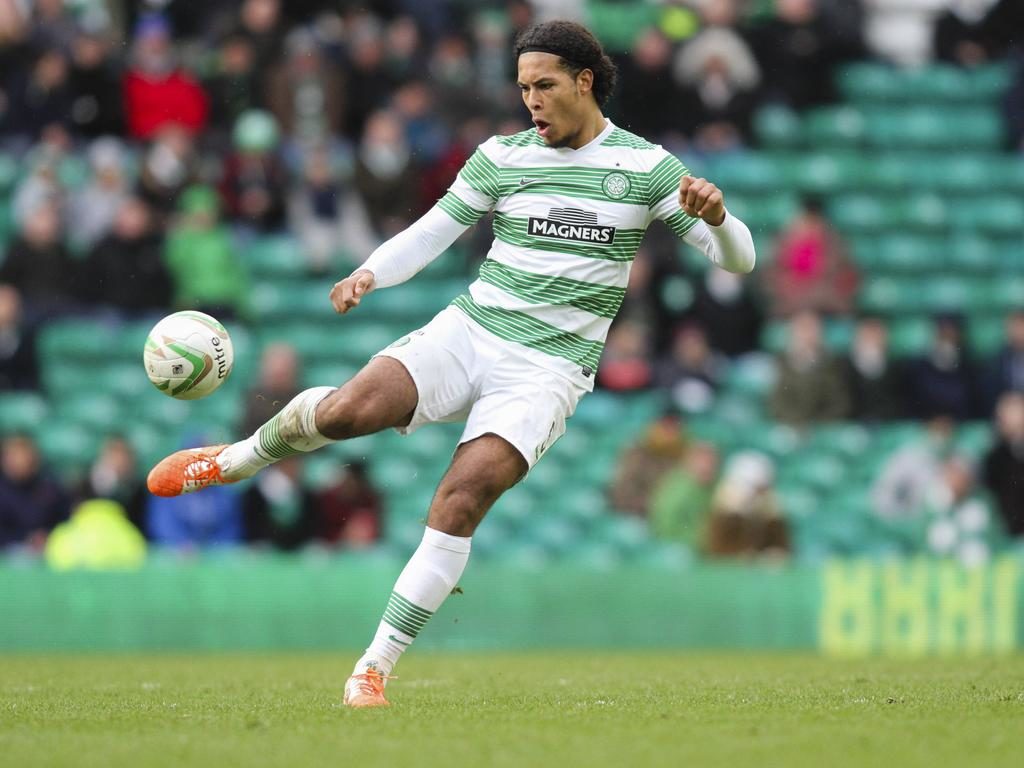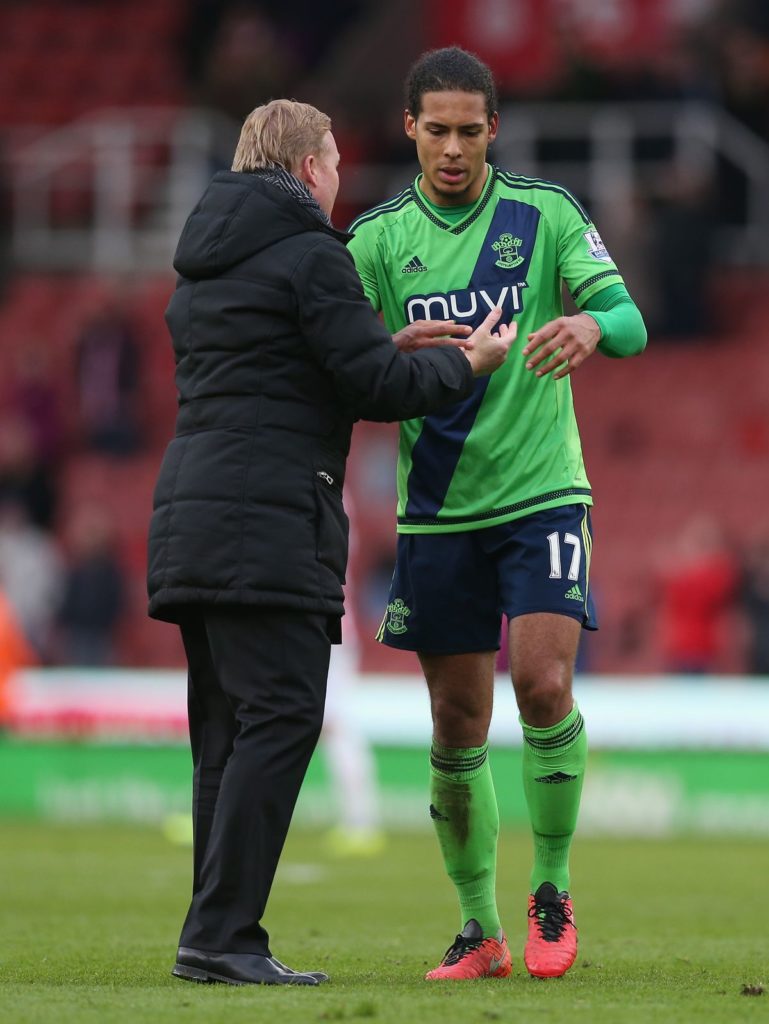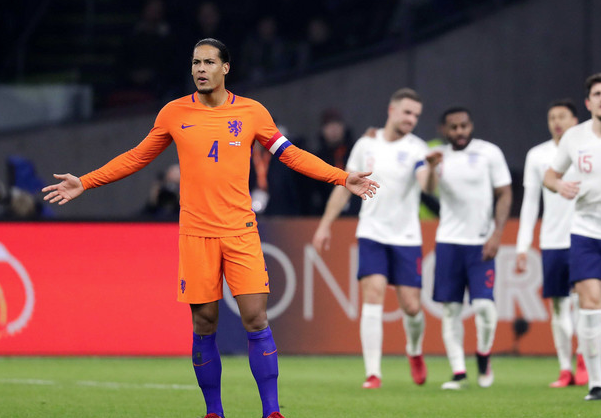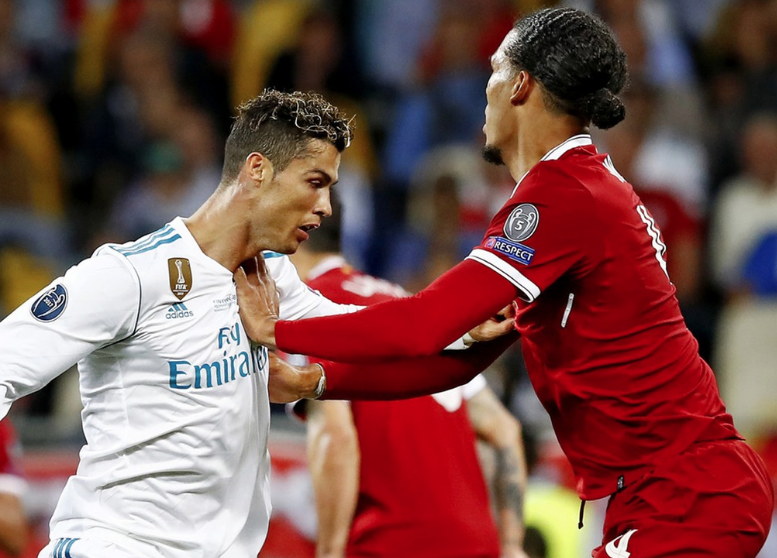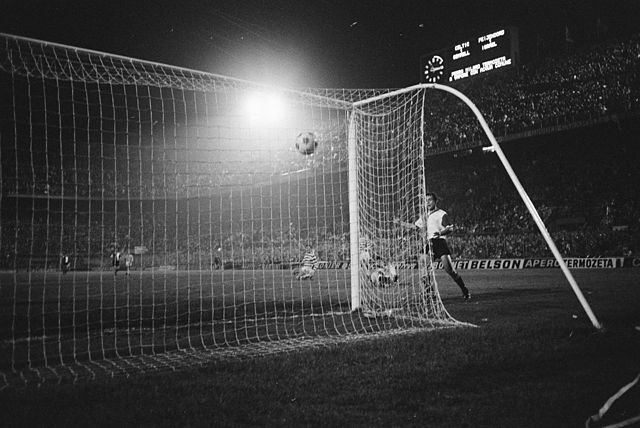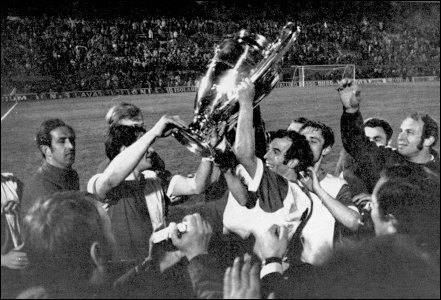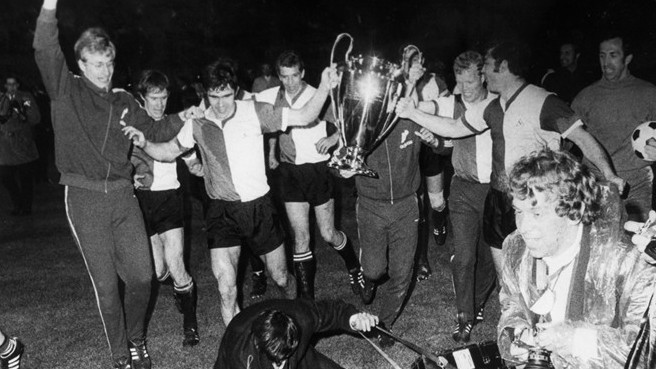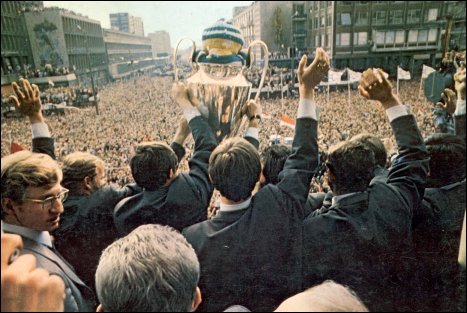The 31st year old has never played on a big tournament. The World Cup would be the realisation of his boyhood dream. And as skipper of Oranje, he will lead the team out. He discovered himself at Liverpool. A heavy knee injury might have delayed his debut at a Tournament with capital T, but he came back as if nothing happened.
Virgil can come across lacklustre. Lazy even. That was the comment on scouting reports from Ajax scouts, some 12 years ago. Complacent. This was the case then and it’s still the case now. His biggest strength is also his biggest pitfall. When he does make a mistake, he will hear that he was trying to solve the problem without getting his jersey dirty. Van Dijk does not throw his energy around but tries to solve problems by positioning smarter and making the right choices. Nothing arrogant about that.
Take that goal Man United scored. Sancho chopped inside. Milner slides past, while Becker dove to the wrong corner of the goal. Sancho simply passed the ball in the other corner. All this time, Van Dijk was ball watching with his arms behind his back. Milner was seen in close up after the goal was scored, scolding Virgil for not throwing his body on the line. But Virgil did what he always does. He’s always trying to organise so that flying tackles aren’t needed. He is like the CEO amongst defenders. He makes sure others do their job, so he doesn’t need to do it.
When Klopp was asked about the contributions of Van Dijk, in his first season, he answered: “Influential. Very very very influential”. On December 27, there is a sort of public holiday in Liverpool. The Virgil’s Arrival Day. When he finally came over from Southampton, for 85 million euros. Where the amount is constantly dug up when Maguire makes another mistake, this Virgil transfer fee is simply a foot note.
As Klopp put it: “Thanks to Virgil, we can defend differently. Higher up the pitch. We can make the playing field smaller now.”
When he returned after his injury, the Daily Mail asked him if he was back to normal and he nodded yes. What people didn’t realise, and Virgil was a bit taken aback with that fact, is that he had to literally learn how to walk again! While his team mates were playing football and had their summer break or the Euros, Virgil was working like a beast, all by himself. He didn’t want to hurry his recovery by focusing on the Euros, knowing how tough it is to get back from this crucial injury.
“Everyone seemed to think it was normal that I got back at my level. As if nothing had happened. Based on my research, being able to get back at your normal level is not something that can be expected. And I’m not a spring chicken anymore either, so I felt that I could have received a bit more positive feedback than I did, as I started to play in every single game again…” His colleagues in England did give him the kudos he deserved, by picking him as the only non creative player in the list of nominees for Player of the Year (along side Salah , Mane, C Ronaldo, Kane and De Bruyne).
Check the personal duels won by Big Virgil.
Virgil was asked during a presser with Oranje and Van Gaal whether he was able to hear any of the commands from the side-line, usually given by Danny Blind at Oranje or Klopp at Liverpool. “No, I am too loud myself, so I can’t hear the coaches yell at me, hahaha”. And it’s true, Pep Lijnders once said he sits more comfortable if he can hear Van Dijk’s bassoon in the stadium. He is the command centre of the Liverpool build up.
As the CEO of the Liverpool defence, he has ample tasks. After he went from Groningen to Celtic, he was described as a big unit (a wardrobe is the literal translation) with imposing physical qualities. And yes he is tall and yes he can head a ball. Lijnders always says you need to really run around him if you want to get past him. But he’s not a very physical defender. He’s not like Man United’s Martinez or Mathijs de Ligt who love some Greek Romanian wrestling. With all the space in Virgil’s back, he needs to conduct the defence. And make sure it’s all fine tuned and in sync. It’s a balancing act, as he himself is usually situation on the halfway line. In the Big Five competitions, there is no team that was able to play the offside as much as Liverpool, last season.
It does fail at times and when it does fail, it looks really amateuristic. But, Klopp wants it like this and if there are mistakes made, it’s just par for the course. Because overall, it will work often very well and it allows every Liverpool player to be part of the attacking flow.
Van Dijk is a mind reader. He plays mainly with his brains. He tries to get into the head of the forward and he slows their attack. He won’t “bite” immediately, he will simply slow things down so his mates can track back. He basically pushes the pause button. He delays his decisions and actions, he pushes the opponent to the sides, with his running pattern and he hardly ever needs a foul or a tackle, even. He’s strong, very good in the air, relatively fast, technically solid and he oozes confidence.
Unbeaten record at home. Cool to see two other Dutchies and one former Dutch Eredivisie player (Alex) in the mix. Virgil NEVER lost a home game in the PL.
It’s probably his intelligence that makes the real difference. He can organise his defence in such a way that the opponent’s forwards think they’re always a step too late. The magic is in his timing. He developed a masterful sense of timing, when to press up, when to drop back. How to offer cover, when to mark and how to push a forward to the sides. He has the highest winning % in personal duels in the Premier League and it’s not a coincidence. He’s like Mr Charisma, the ability to foresee the moves of the opponent and to almost attract them to do what Virgil wants.
Lijnders: “We knew he would be a direct contributor as an individual player, but he also contributes indirectly, by making other players better.”
We all know Virgil’s story. A lazy right back at Willem II when he was 16 years old. Nothing special . When he turned 17, he suddenly grew another 18 centimerers. And his life changed. Grads Fuhler, scout of Groningen (now at FC Emmen), saw him play by coincidence. Fuhler was on his way to a game in Belgium and realised Willem II A1 played PSV A1 so he took the Tilburg exit. A week later, Virgil and mum were on their way to Groningen to sign for the local FC.
At Groningen 2, he spent a lot of time on the bench. His coach, Dick Lukkien (now head coach at FC Emmen) spent a lot of time on Virgil, who was still complacent. Lukkien desired more from the player and slowly but surely, Van Dijk started to change his mentality. The Top 3 didn’t see it in him, although Ronald Koeman was keen to sign him for Feyenoord. There was no money though. Ajax decided to get Mike van der Hoorn from FC Utrecht. At Celtic, he made some crucial steps but it was when Koeman was able to sign him for Southampton that the Oranje captain started to thrive. Both Lukkien and Koeman are mentioned by Virgil when asked which coaches were instrumental in his career.
If you ask English fans who were or are the best defenders ever in the PL, his name is mentioned, alongside players like Terry, Rio Ferdinand, Tony Adams and Nemanja Vidic. Not bad for a player who never played a big Tournie.
Ironically, Virgil is now the captain of the WC squad under a coach who in 2014 decided to leave him home. Van Gaal said he saw the same mistakes being made over and over again and decided to take Martins Indi, Stefan de Vrij and Ron Vlaar. Willem Vissers interviewed Van Gaal who said more negative things about Van Dijk. After the interview, Van Gaal instructed Vissers to delete these comments. Vissers can not remember exactly what the current team manager said, but it was something like “he doesn’t press forward enough, and he doesn’t see players running in behind, he is simply not good enough…”. Van Gaal did say in 2019 that Van Dijk has the personality to instil fear in his opponents.
Van Dijk says something interesting in the book “Thou Shall Not Pass: The Anatomy of Football’s Centre-Half”: “I want my opponents to think everything I do is easy for me. Look at Roger Federer. He doesn’t even break a sweat, or so it seems. Mentally, that will be tough for the opponents. They think Federer doesn’t even need to work hard. I try to do this too.”
The Liverpudlians call him VVD. Superman on Anfield. Mr Cook. With Van Dijk in the team, they hardly ever lose at home.
When Virgil made his first entrance in the Oranje squad, he was in awe of Robben and Kuyt. He was observing them. How they acted, what they ate, how they behaved. As kid, he wanted to be Ronaldinho and he thought Jaap Stam was two meters tall. The World Cup was millions of miles away from the kid in Breda. Virgil became his version of Ronaldinho. Now, kids in England and Holland dream of being Virgil van Dijk. In Liverpool, he’s a demi God.
Virgil’s debut.
It was a different time. Oranje at a historic trough. The Euros of 2016 are out of sight. In the final away game versus Kazachstan, coach Danny Blind gives Virgil a chance, alongside debutant Kenny Tete. The game is won, 1-2 but three days later, the Czechs are too strong in the JC Arena. Oranje ends 4th behind the Czechs, Iceland and Turkey. Blind played: Krul, Riedewald, Bruma, Van Dijk, Tete; Wijnaldum, Blind, Sneijder; Depay, El Ghazi, Huntelaar.

